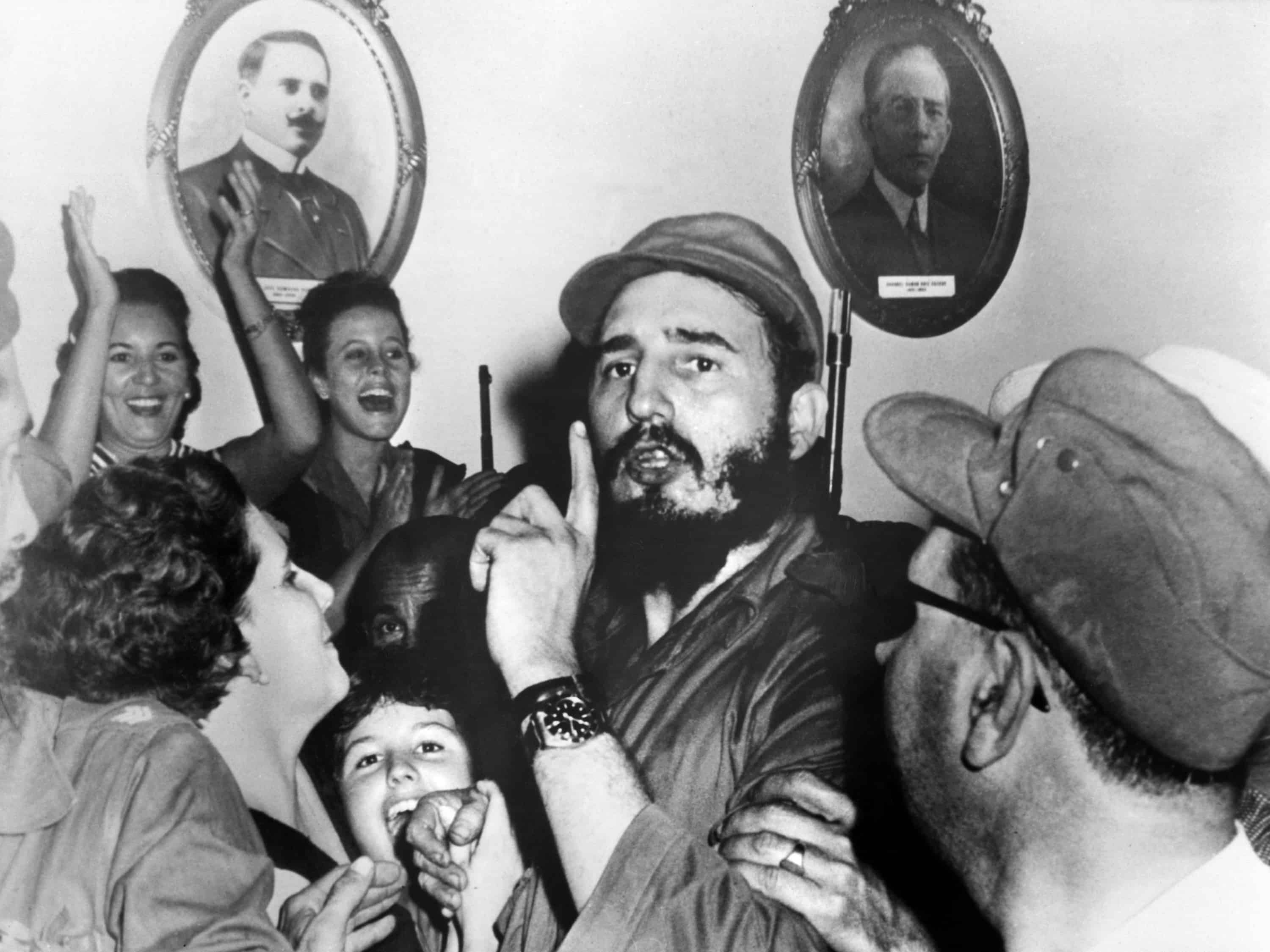HAVANA, Cuba: Cuban revolutionary leader Fidel Castro has died aged 90, prompting mixed grief and joy Saturday along with international tributes for the man whose iron-fisted rule defied the United States for half a century.
One of the world’s longest-serving rulers and among modern history’s most striking personalities, Castro survived 11 U.S. administrations and hundreds of assassination attempts.
Fidel Castro crushed opposition at home from the moment he took power in 1959 to lead the Caribbean island through the Cold War. He stepped aside only in 2006 after intestinal surgery.
For defenders of the revolution, Castro was a hero who protected ordinary people against capitalist domination. To opponents, including thousands of Cuban exiles living in the United States, he was a cruel communist tyrant.
Castro eventually lived to see the restoration of diplomatic ties with Washington last year.
National mourning
President Raul Castro, who took power after his elder brother Fidel was hospitalized in 2006, announced the news on national television just after midnight Friday.
“The commander in chief of the Cuban revolution died at 22:29 hours this evening,” Raul Castro said in a solemn voice.
He gave no details of the cause of death. He said his brother would be cremated early Saturday.
The government decreed nine days of mourning.
From November 26 to December 4, “public activities and shows will cease, the national flag will fly at half-mast on public buildings and military installations,” said a statement from the state executive.
Castro’s ashes will be buried in the southeastern city of Santiago on December 4 after a four-day procession through the country, it added.
‘Symbol of an era’
Castro’s death drew strong reactions from world leaders.
“The name of this distinguished statesman is rightly considered the symbol of an era in modern world history,” said Russian President Vladimir Putin in a telegram to Raul Castro.
Former Soviet leader Mikhail Gorbachev said the late leader left a “deep mark in the history of mankind.”
“Comrade Castro will live forever,” said Chinese President Xi Jinping in a message read on television. Castro was “a great man of our time… History and people will remember him.”
French President Francois Hollande said Castro “represented, for Cubans, pride in rejecting external domination.”
Venezuelan President Nicolas Maduro, Cuba’s main ally in the region, said on Twitter: “It is up to us to continue his legacy and carry his flag of independence.”
Argentine soccer legend Diego Maradona hailed Fidel Castro as “a second father.”
Trump
The White House said it extended a “hand of friendship” to the Cuban people.
But U.S. President-elect Donald Trump wrote in a statement that the world was marking “the passing of a brutal dictator who oppressed his own people for nearly six decades.”
Cuba’s warming ties with the United States risk taking a hit under Trump.
He threatened before winning the election to reverse the two countries’ historic 2014 rapprochement if Cuba didn’t budge on the sensitive issue of human rights and free political prisoners.
Cuba says it refuses to be dictated to by foreign powers.
Joy in Miami, grief in Havana
In the streets of Miami, home to the bulk of the Cuban-American community, euphoric crowds waved flags and danced, banging on pots and drums and honking their car horns.
“It’s sad that one finds joy in the death of a person — but that person should never have been born,” said Pablo Arencibia, 67, a teacher who fled Cuba 20 years ago.
“Satan is now the one who has to worry,” he added, because “Fidel is heading there and is going to try to get his job.”
Castro was loathed by many for stifling dissent, but loved by others for providing free universal healthcare and education.
“Losing Fidel is like losing a father — the guide, the beacon of this revolution,” said Michel Rodriguez, a 42-year-old baker in Havana.
‘Socialism or death’
Fidel Castro came to power in 1959 as a black-bearded, cigar-chomping 32-year-old, in a revolution against former dictator Fulgencio Batista.
“When this war is over, a much longer greater war will begin: the war that I am going to wage against them,” the United States, he had said in 1958.
“That will be my true destiny.”
Living by the slogan “socialism or death,” Castro kept the faith to the end, even as the Cold War came and went.
He endured more than 600 assassination attempts, according to his aides, and the disastrous U.S.-backed Bay of Pigs invasion attempt in 1961.
“If I am considered a myth, the United States deserves the credit,” he said in 1988.
Castro was at the center of the Cuban Missile Crisis in 1962, as the world stood on the brink of nuclear war.
Revolution
Born August 13, 1926 to a prosperous Spanish immigrant landowner and a Cuban mother of humble background, Castro was said to be a quick learner and a keen baseball player.
His formed a guerrilla opposition to the U.S.-backed government of Batista, who had seized power in a 1952 coup.
After a failed uprising in 1953, Castro was put on trial. In a self-defense speech he said defiantly: “History will absolve me.”
After two years of prison Castro went into exile in Mexico and organized followers for their ultimately triumphant uprising.
On December 2, 1956 the rebels sailed to southeastern Cuba on the yacht Granma. Twenty-five months later, they ousted Batista and Castro was named prime minister.
He threw Cuba’s lot in with the Soviet Union, which bankrolled his regime until 1989, when the Eastern Bloc’s collapse sent Cuba’s economy plunging.
Ceded power
Fidel ceded power to his younger brother Raul, now 85, in July 2006. The revolutionary icon underwent intestinal surgery and largely disappeared from public view.
Castro married three times and is known to have fathered eight children.
He was last seen in public on his 90th birthday on August 13.






